i figured out why nothing is ever enough (science)
its dopamine all the way down babe
This is episode TEN of Season One: I’m (not?) The Best, a multi-month deep dive into the ideas of competition, comparison, testing and achievement.
It’s 2013 and I’m an up and coming actor in Austin, TX. Having recently starred in three UT film school shorts AND a youtube video that went big time viral called Hell No, I’m feeling pretty damn good about the trajectory of my career.
I’d just signed with the best agent in Austin and now it was only a matter of time until - hey what’s this? An email saying I have an audition for the role of Lucas in the hit TV show REVOLUTION filming in Austin aka the big one the one that leads to all the other ones?? Well holy shit.
“This is a tough role so the casting director strongly urges you to work with a casting director.”
Ooookay, um, what? I mean, I don’t plan on getting a coach - don’t need one - but the fact that they think I need one means this is a BIG deal let’s gooooooo.
For the next three days leading up to the audition, my behavior is…strange.
Rather than focusing on the audition itself, I just keep checking my inbox. Why? I’d gotten the opportunity itself already - the biggest of my career!! - and yet all I wanted was…more. Except I didn’t want to keep checking. Or, more specifically, I hated how I felt when I did. But I couldn’t stop. WHY?
Inside this tale of my audition for Revolution exists a perfect microcausm (sic!) of my career as an actor and, really, my life as a human being – craving more, sometimes getting it, never being satisfied, rinsing and repeating.
This entire season of Both Are True - I’m (not?) the best? has been me trying to figure out why with middling answers at best. Today, though, a big break in the case.
The dopamine made me do it.
everything in this essay is science
I’m no scientist, and lord knows I’ve tried (see also: my unpublished phd thesis “an eye for an eye makes the whole world double blind”).
But to understand what’d been driving me, I had to roll up my sleeves and honestly then just take off my shirt entirely, cuz shit was about to get messy.
Dopamine is a neurotransmitter, whatever the fuck that means, and based on my research – skimming two books and doing three big boy googles - it’s basically and entirely a modulator of how down bad you are to get something or, for my non jenzee friends, how much motivation and drive you have to achieve…something that might bring you a reward.
People often call it 'the pleasure chemical' - this is wrong. The pleasure chemical is frozen yogurt.
Dopamine is less about pleasure and more about the pursuit of pleasure. Or pain. Really, anything that’s unexpected.
In a broad sense, saying something is “important” is another way of saying it’s linked to dopamine. Why? Because among the many things it does, dopamine is an early-warning system for the appearance of anything that can help us survive. When something useful to our continued existence appears, we don’t have to think about it. Dopamine makes us want it, right now. It doesn’t matter if we’re going to like it, or if we even need it at the moment. Dopamine doesn’t care.
— The Molecule of More
So if it’s free donut day at Dunkies - which is unexpected since every other day of the year you have to pay for donuts, it’s the dopamine that’s gonna get you to drive across town and park and wait in line just so you can nom on that free jelly donut that shoots sweet red sauce all over your hands but who cares it’s so good it’s the best thank god dopamine did that.
And here’s the thing - it doesn’t matter much whether or not you’re hungry - the dopamine wants you to get that donut!
It’s the desire circuit that’s activated when you see the plate of donuts on the table, and it’s activated not by need, but by the presence of something attractive from an evolutionary or life-sustaining standpoint…dopamine says, “Go ahead and eat the donut, even if you’re not hungry. It will increase your chance of staying alive in the future. Who knows when food will be available next?”
— The Molecule of More
So basically you’re walking through life with this lil ‘is this important’ detector that beeps more when you’re near anything that might give you pleasure or pain or really anything unexpected that is important to your long term survival. Dopamine is the fuel for that detector – the more you have of it, the more intensely your detector is going beep beep beep there’s something here that could give us a lot of pleasure or pain or something, DO SOMETHING ABOUT IT WOULD YA?
How does the dopamine do that? Glad you asked. There are two big theories and I was involved in figuring out both of them. One is called “incentive sensitization” and the other is called “prediction error.”
I was not in the office on the day the theories were named because I’da said loudly and proudly that you might as well have called ‘em ‘twinkle twinkle lil star’ cuz they’re gonna put readers to sleep.
theory #1: Sensitive to incentives
Incentives is a big word that means yummy treats when you do something good or get saved from doing something bad.
Dopamine, according to this theory, acts as an incentive detector that goes beep beep beep whenever you get close to a situation that you might want to avoid (pain) or could get you something that you want - food, sex, a role in the hit TV show Revolution (pleasure, huge tv career, emmys galore, EGOT x2, a tell all mem-mwah titled ‘so you say you want a (role on the tv show) revolution’ .
So the more dopamine that’s firing, the more likely you are to look for a reward. So, it’s a measure of “wanting.”
I know what you’re thinking - ‘so if its a measure of reward, and we get pleasure from rewards, then isn’t it really a measure of pleasure (say that 3x medium speed)?’
NO. Here’s an ‘abstract’ from a science:
Rewards are both ‘liked’ and ‘wanted’, and those two words seem almost interchangeable. However, the brain circuitry that mediates the psychological process of ‘wanting’ a particular reward is dissociable from circuitry that mediates the degree to which it is ‘liked’. Incentive salience or ‘wanting’, a form of motivation, is generated by large and robust neural systems that include mesolimbic dopamine. By comparison, ‘liking’, or the actual pleasurable impact of reward consumption, is mediated by smaller and fragile neural systems, and is not dependent on dopamine.
Here’s how they figured this all out.
For a while, Scientists looked at dopamine levels in rats somehow and saw dopamine levels increasing when rats were given lil food pellets, especially when the food was given intermittently, meaning not on any set schedule. The anticipation of the food - a potential reward - was making dopamine shoot up and causing the rats to really try and get themselves that food!
THEN, they took away the rat’s dopamine by doing some unspeakable shit in their brains and then watched to see if the rats would still want to eat any food if it was given to them. And guess what, the rats still loved eating food. This was surprising - scientists thought that no dopamine would mean no enjoyment from the food. BUT the rats still enjoyed the food. How do we know?
CUZ THEY STILL LICKED THEIR LITTLE RAT LIPS WHICH IS A UNIVERSAL SIGN OF YUM YUM IN MY TUM TUM ACCORDING TO SCIENCE. Look:
Because there’s truly nothing that says “I am so happy cuz I just ate some food” than this right here:
This reminds me of a photo taken when Lauren was pregnant with Wilder and our dog Robert was clearly living his god damn best life:
Also get this - low dopamine is involved in Parkinson’s! It’s connected to movement somehow. So Parkinson’s patients are often given dopamine ‘agonists’ to boost their dopamine levels. About 15-25% of those people develop impulse control disorders to things like gambling, online shopping, and - here it is - internet use.
Flashback to my audition for Revolution. Any email I received of that type had already been coded to release big dopamine into my brain because it was connected to the experience of me possibly (and sometimes, when i booked a part, actually) getting a role which would change my life and let me do what i’ve always wanted to do etc.
So when I got that email, my brain was absolutely going bonkers flooding with dopamine. It didn’t really matter that the role was just a random dude being tortured via waterboarding who died in that episode. Did I mention that earlier? I might have forgotten. Yea, the role was Lucas, man who dies from being waterboarded.
In my mind, it had already brought me such copious amounts of dopamine, that it was a BIG DEAL.
The truth of the situation - that it was a small role very much outside my wheelhouse (comedy and waterboarding aren’t exactly bedfellow) – did not matter.
Leading up to the audition, I probably spent 80% of my time opening that email, over and over again, and 20% researching what it’s like when you get waterboarded.
theory #2: life is one big prediction error
The other big theory is called Prediction Error theory. This one posits (posits!) that our brain, that lil rascal, is always making little expectation reports of what it thinks will happen. It then compares that with what actually happened and if there’s a difference in either direction (positive for pleasure, negative for pain) - bam! - that’s a prediction error.
So for example, when I walked into the audition for Revolution to read for the role of Lucas, the man being waterboarded, and had to wait in the lobby for two hours listening to other dudes go in and audition for the role, each of them having their own loud, screaming for their lives interpretation of what it sounds like when you’re waterboarded, I was terrified. This was NOT how I expected my big day of booking the big role to go. And so I was flooded with dopamine that told me I was in a dangerous situation (people nearby were literally being waterboarded!!), which made me shut down internally and really fuck up the audition itself!!
So the bigger the expectation error, the more dopamine you get which tells you ‘hey, there was a huge fuck up here - we thought it’d be a normal nothin thing but then it was crazy wild and so let’s remember to try to do more of (or really avoid) that.’
According to some guy named Schultz, dopamine doesn’t care about what specifically is causing the prediction error:
“They're only interested in the value,” he says. “They don't care whether it's food reward or liquid reward or money. They're specific about the prediction error, but they don't care what the reward is.”…
— From the esteemed Scientific American essay Dopamine: The Currency of Desire
Well that’s fascinating because ya know what else is all about prediction error? Comedy! Life is a series of expected futures that end up, more or less, being accurate. This is, by definition, not funny. This is normal, the ‘once upon a time’ part of a story that happens before the ‘but then one day,” when something different happens. Same with comedy. Everyone walks normal, but at the ministry of silly walks, people walk silly. Bam, funny.
Is there a direct relationship between dopamine and comedians that explains why comics are both funny and generally have addictive personalities that require giant doses of constant love and adoration from audiences? Definitely!
Let’s talk drugs
Taking drugs is classic dopamine stuff. Eventually, the drug stops feeling all that good and we become addicted to the wanting of the drug, which we associate with the good feelings of the drug even if they are no longer there. But why is that? Shouldn’t we just keep on feeling good from the drugs and the dopamine and all is great?
No you silly goose. In Dopamine Nation, Dr. Anna Lembke explains that when you experience a nice big ol influx of dopamine, your body wants to bring you back to baseline and it does so by pushing on the pain side of the scale so that you can enter what we call Homie O. Stasis. And in order to get back to that baseline, the drop in dopamine takes you lower than baseline so that you can then slowly upregulate back to normal.
Do I actually know if this is how it works? Not exactly, but it doesn’t seem like the people writing these books do either.
Also at play is something called habituation, which the esteemed and kind scientist Irene Salter, who agreed to review my essay (peep review!!!), explained in a google doc comment as:
Each time you get a dopamine burst to something you love (getting 10 laughs), the next set of 10 laughs doesn't trigger as much dopamine because you're getting used to the new standard. Now you need 15 laughs to get the same dopamine burst. See the problem here. This is what happens with drug addiction, gambling addiction, and workaholism.
So you’re dipping below baseline and you need more of whatever the thing was to get you back up to that feeling of good. Here is a science graph I spent years making:
So for example, when I did the waterboarding audition and gave it all I had and screamed and tried to act as though I was being tortured and, when I finished, the casting director called it “heartbreaking,” I now had the expectation of getting a call or email in the next few days telling me I had gotten the role.
And so I kept checking and checking, waiting for my burst of good feelings, but good feelings there were not. But I’d been trained by prior auditions that received praise that I’d get the role so I expected dopamine every time but instead got none, sending me crashing even harder, lower and lower below my baseline until the only thing I could do to try and get back to baseline was…well, keep checking my email.
I never got the part. I did not have to be waterboarded on television. But my dopamine baseline? It was never the same.
The endless possibility of social moredia
Here, finally, may be an answer to why I can never be enough:
If dopamine is about the possibility of something else, the promise of later, there’s no better source than the internet connected smartphone with social media on it. Sure, we originally used it for phone calls and texts, both things that in some way are about the present moment, but now the phones are nothing more than endless possibility machines. There is always the possibility of something else good happening, of something that gets us so fucked up on dopamine we may forget about reality entirely.
The internet is just one giant ‘maybe there’s more’ machine, and it’s that ‘maybe’ that’s key. Because we don’t know when the reward will come, but the more dopamine debted we get, the more we need it, and so the more we play. Intermittent rewards, which our brains see as the potential - but not guarantee - of a big big reward!
In short, we’re fucked.
Or are we?
A way out
Luckily for us all, there has been a movement of pioneers called ‘content creators’ on YouTube devoted to something called dopamine detoxing. For example, here’s scientist and productivity content creator Andrew Kirby doing a 1 hour dopamine detox:
Amazing stuff!
Sometime around 50 minutes, Andrew changes position:
Now I figure heck, if Andrew Kirby who has absolutely zero rizz can pull this off, why can’t I?
Introducing, Dobrenko’s Dopamine Detox
Special giant thanks to the scientists and Irene Salter who were kind enough to answer my questions and peep-review my paper.
Support science, pay for BAT
Since I have been completely shut out of the scientific funding community, I rely on patronage from you all, my readers, to keep my science and writing at BAT going.
Please, consider becoming a paid subscriber today and hey also -
The fifty percent off forever deal stands
When you take the yearly price for BAT - $69.99 and SLASH 50%, you get $35, which is how old I used to be last year and it’s also…
The price of all annual subscriptions IN PERPETUITY WHICH MEANS FOREVER AND THEN SOME.
Notes for future research / comments
Did my dopamine detox help??
What do you think about all this??
Did I get all the science right?? I must have.
Knowing all this, how do we do things differently? I for one have not really been able to turn off my dopamine seeking behaviors even though I now understand them?
related: knowing that wanting things and liking them are not attached, how do we convince ourselves to do stuff that we don’t want to do but know will be good for us (eating healthy, working out , etc ) I hate to use the word ‘hack’ here bc I’m not a knife guy nor a coder but you know what I mean - how can we HACK the dopamine ?
What is dopamine’s role in nostalgia aka a longing for something that used to be awesome?
how can we prove dopamine is the root of comedy?
what other crazy shit do you think dopamine is up to?
how are you are you ok?



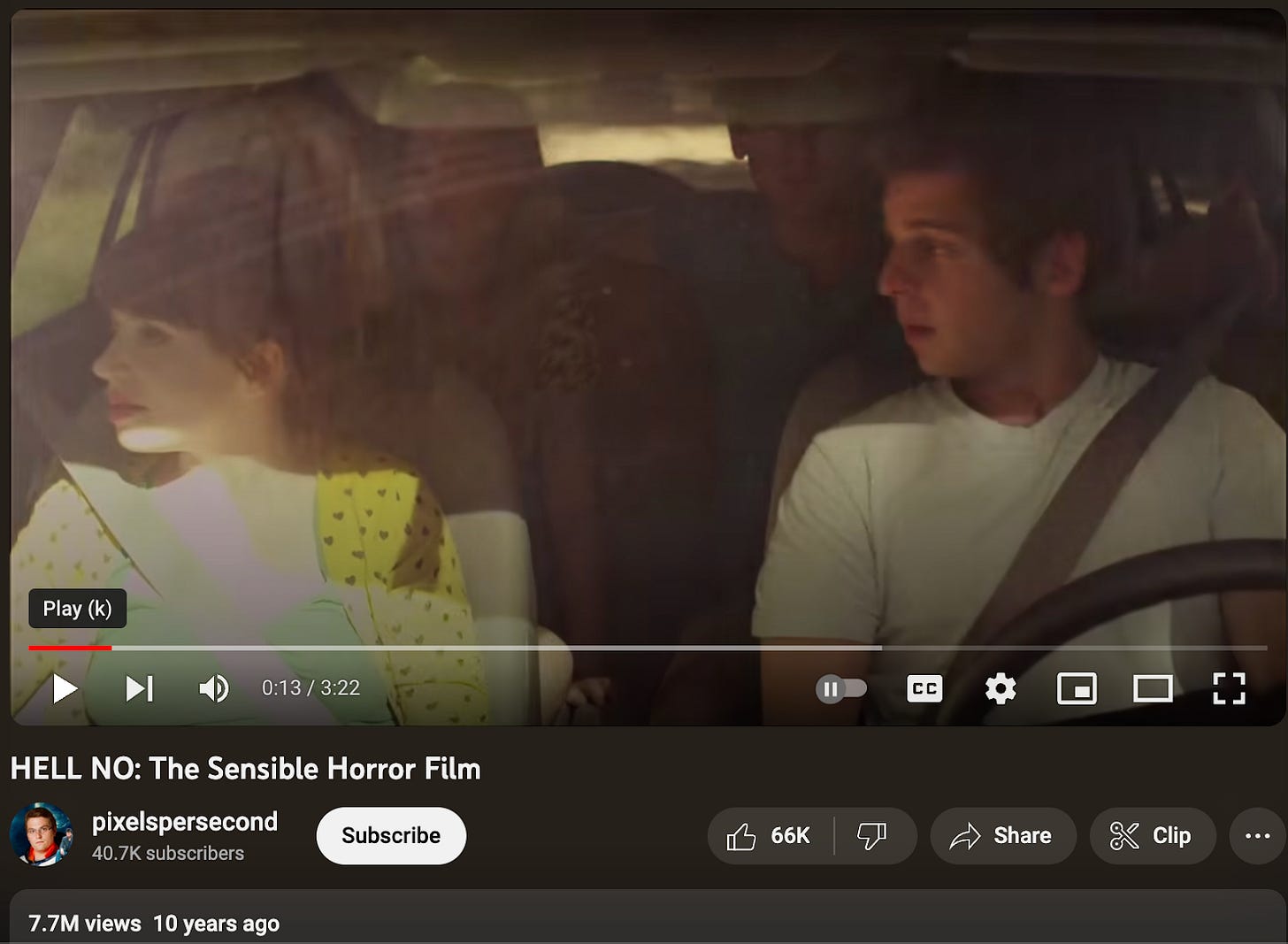
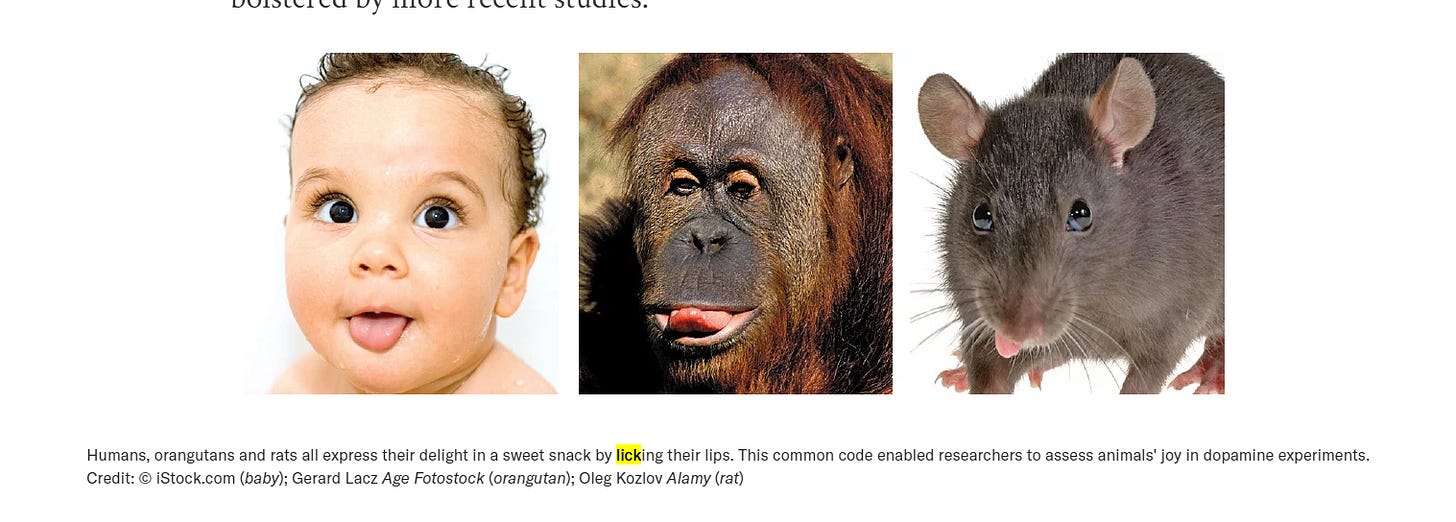
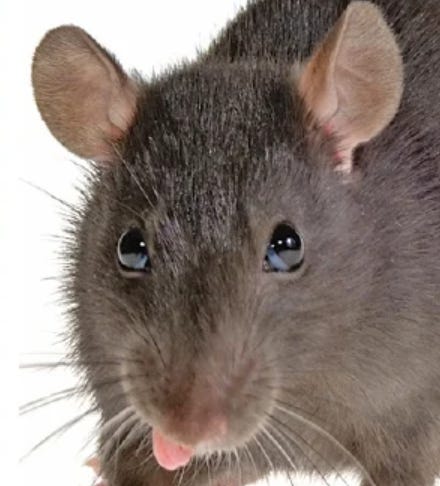
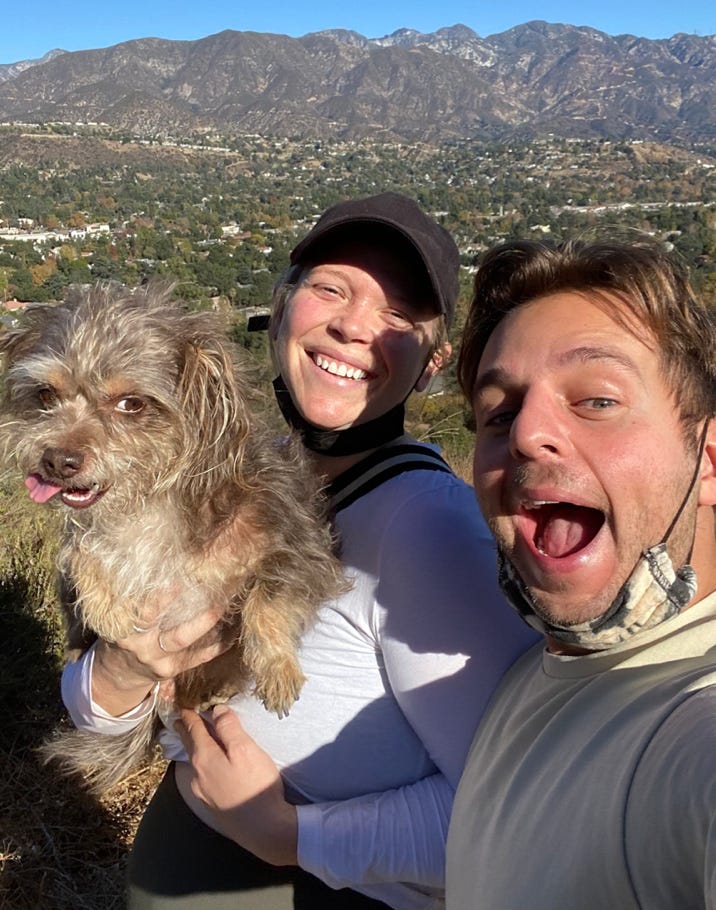
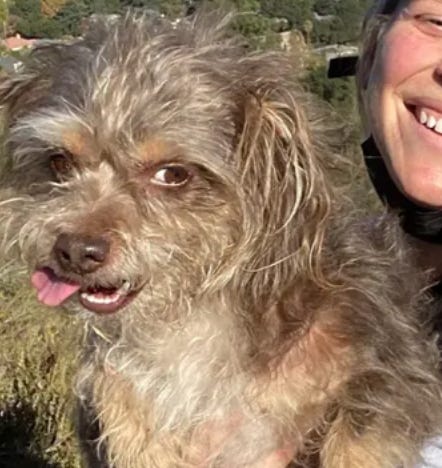
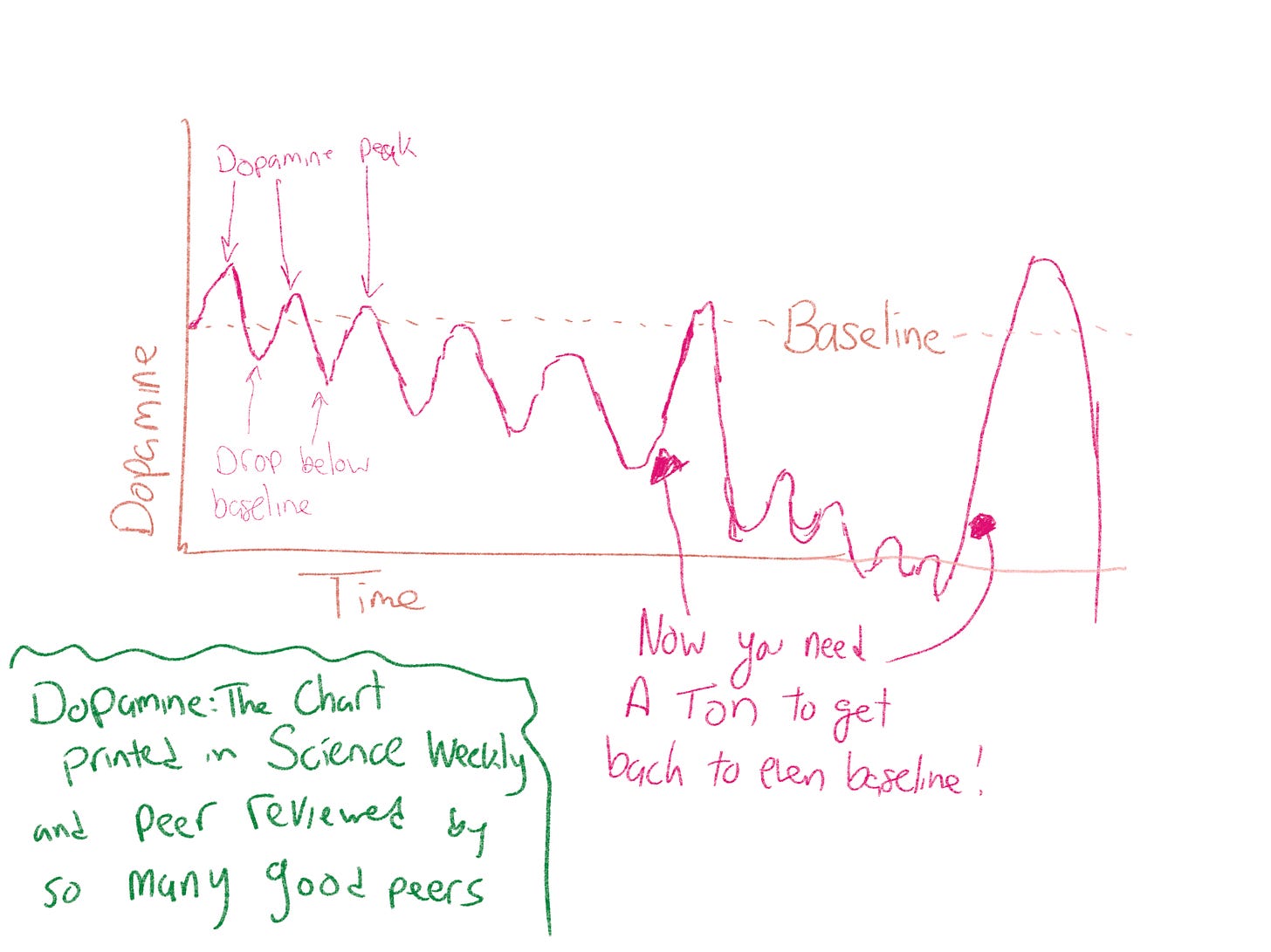
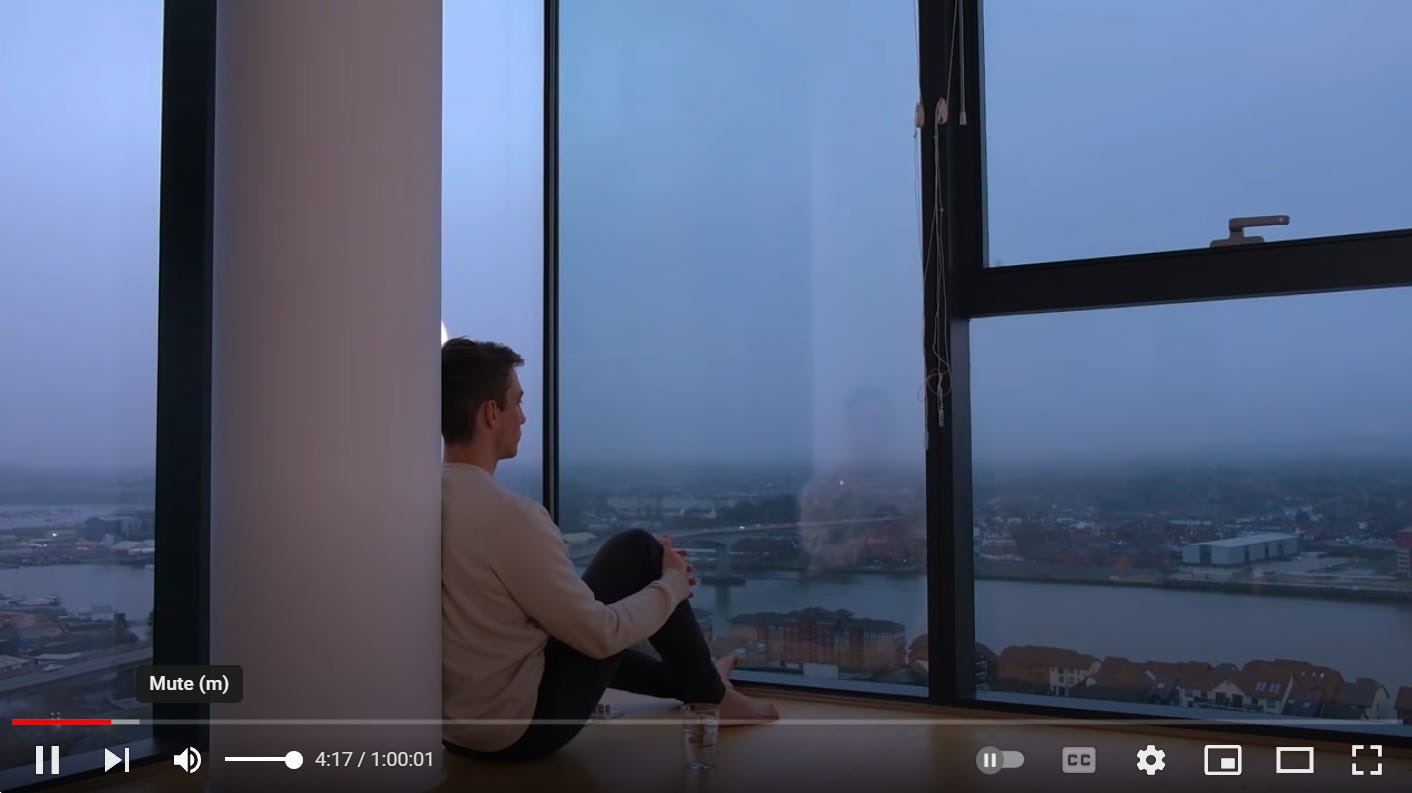
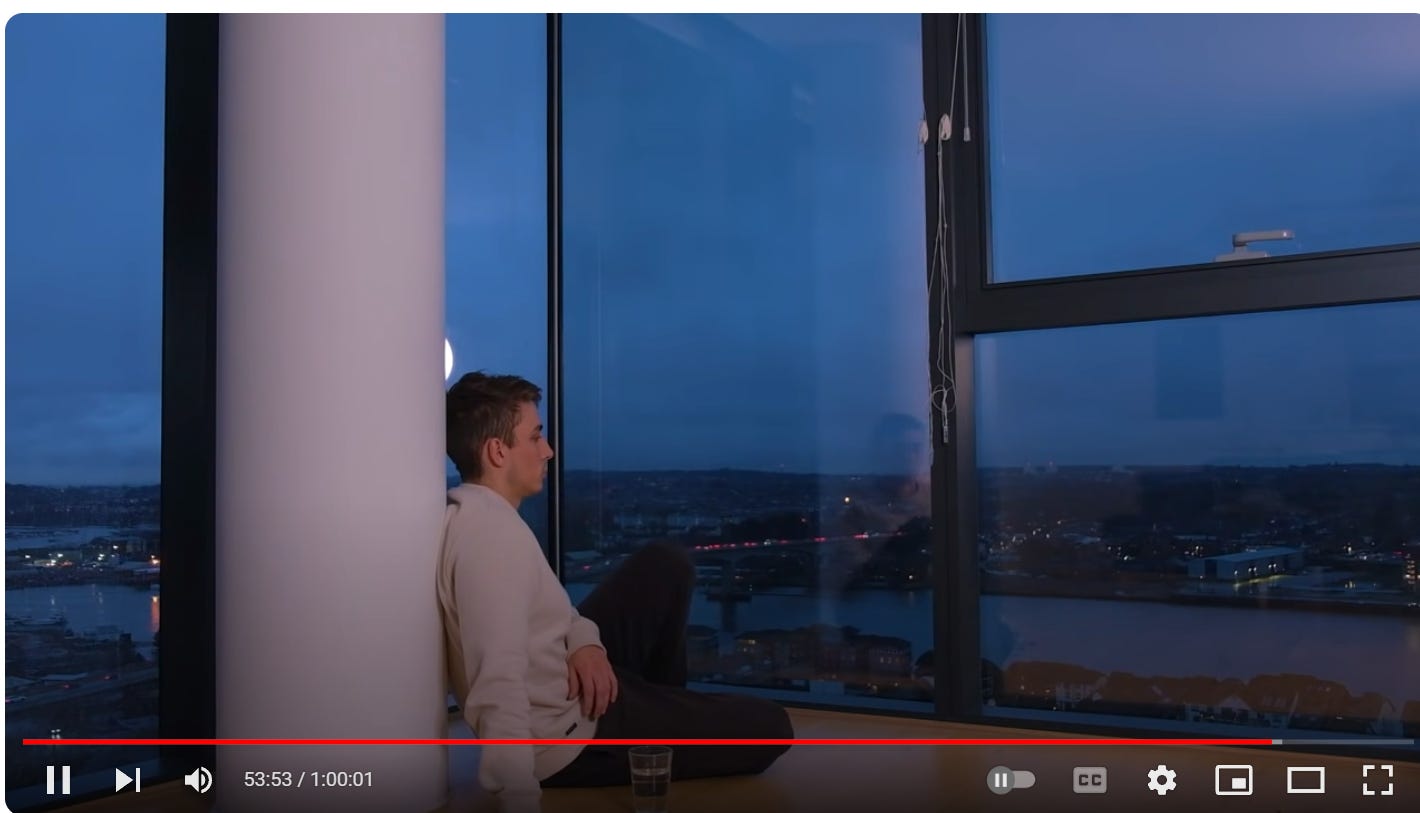
Stay dope ✌🏻
I'm sorry to be the one to tell you this, but you've been duped by Big Dopamine.